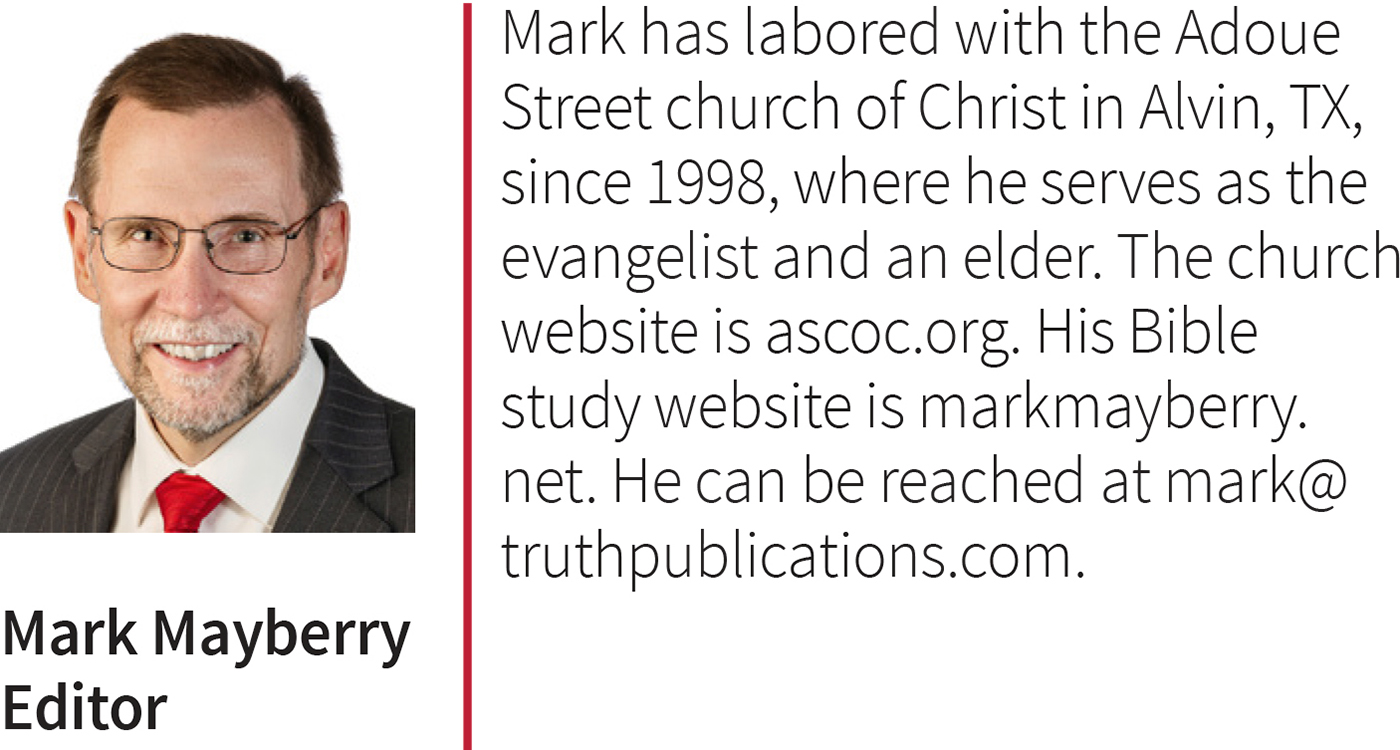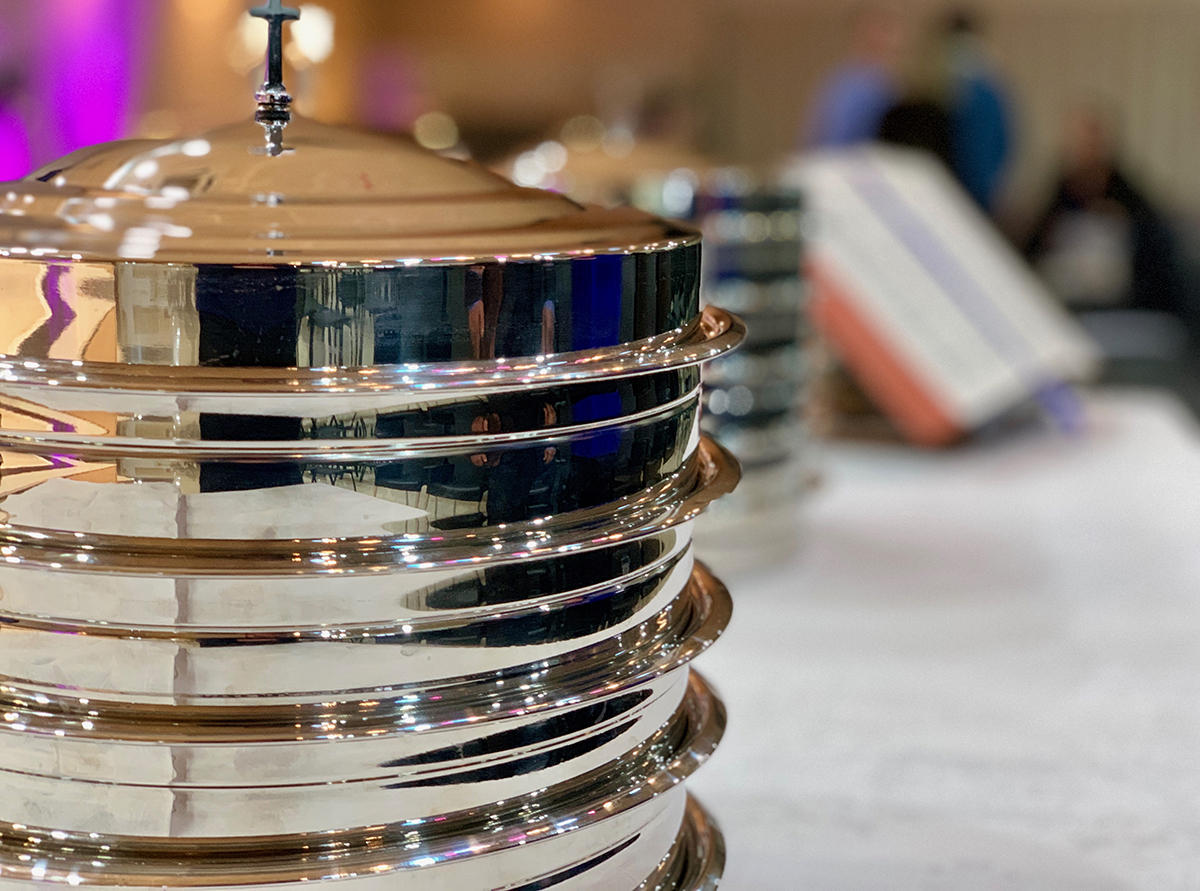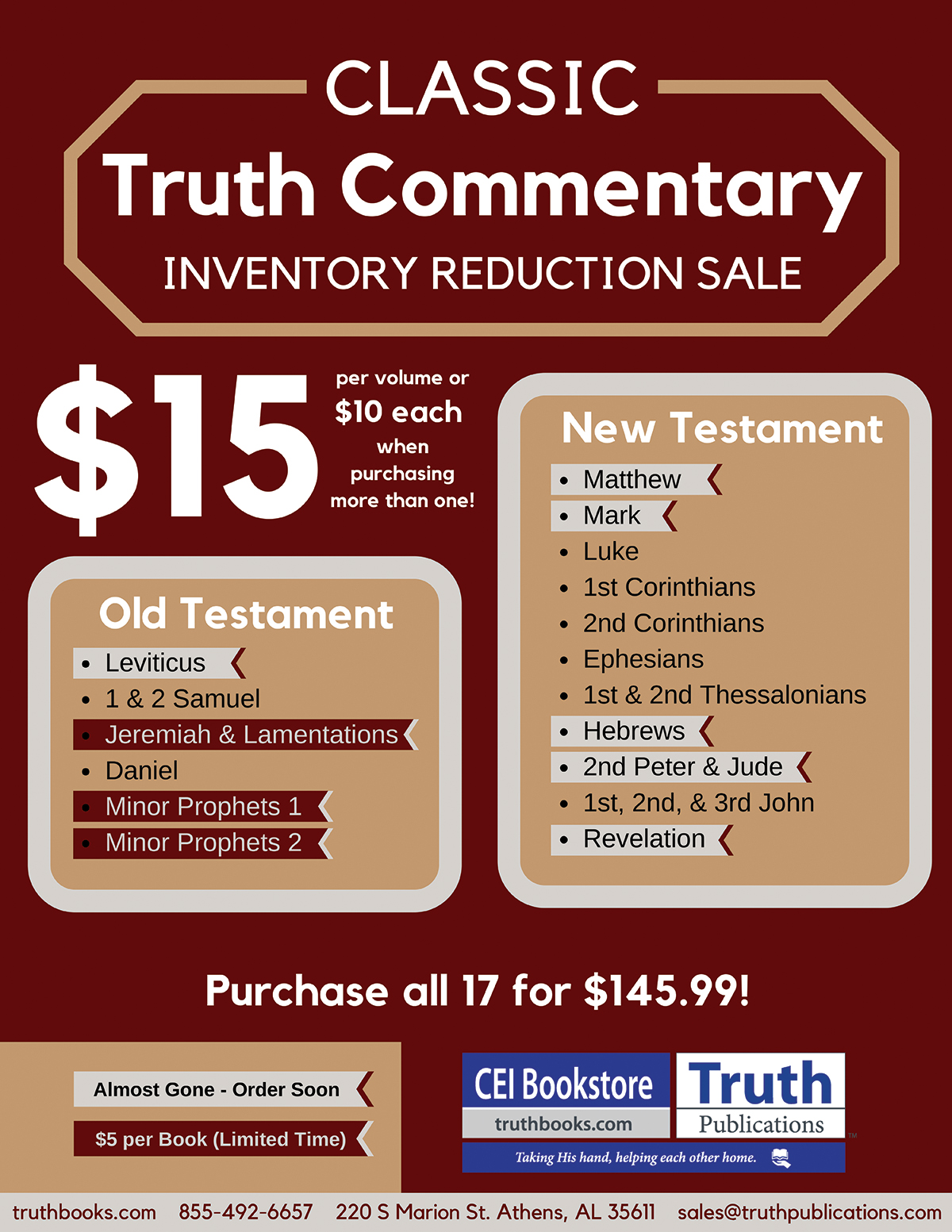
by Mark Mayberry
Synopsis: The observance of the Lord's supper is a central part of Christian worship, bringing blessings and providing focus. Yet, it is fraught with danger if we fail to partake in a worthy manner.
The Lord's supper is a profound act of worship—proper observance brings spiritual blessings; improper observance results in divine condemnation. Although misunderstandings abound, through honest and open Bible study, such errors can be eliminated.
How did this practice originate? Jesus instituted the Lord's supper on the night of His betrayal (Matt. 26:26-29; Mark 14:22-25; Luke 22:14-20; 1 Cor. 11:23-25). For generations, the Passover commemorated Israel's deliverance from Egyptian captivity. Yet, Jesus institutes a new feast with a deeper meaning: the Lord's supper memorializes man's redemption from the bondage of sin, a blessing realized through His death, burial, and resurrection.
Jesus took some bread, and after a blessing, He broke it and gave it to the disciples, and said, "Take, eat; this is My body." According to the law governing the Passover, the bread was unleavened, i.e., made without yeast—producing dough which did not rise (Exod. 12:18-20; 13:6-7; Num. 28:16-17). Initially, it was connected with Israel's hasty departure from Egypt (Exod. 12:11; Deut. 16:3-4). Over time, leaven came to symbolize the insidious influence of sin (Matt. 16:6-12; 1 Cor. 5:6-8; Gal. 5:7-9). In the Christian observance, the bread represents the body of Christ, "our Passover," a lamb without spot or blemish, offered on the cross as the perfect sacrifice for sin (1 Cor. 5:7; cf. Isa. 53:7; John 1:29; 1 Pet. 1:18-19).
After taking a cup and giving thanks, Jesus said, "Drink from it, all of you; for this is My blood of the covenant, which is poured out for many for forgiveness of sins." This cup, i.e., "the fruit of the vine," symbolizes the shedding of His blood. In the Old Testament, animals were slain in place of the offender. The blood of bulls and goats could not altogether remove the stain of sin but foreshadowed Christ's perfect sacrifice (Heb. 9:11-14; 10:1-10). Eternal forgiveness was made possible through His life, death, and resurrection (Eph. 1:7; 1 Pet. 1:18-19; Rev. 1:5). Reconciliation of lost humanity, Jew and Gentile alike, is accomplished through His shed blood (Acts 20:28; Eph. 2:13-14). Through dying on the cross, Jesus became the mediator of a new and better covenant (Heb. 8:6; 9:15-22; 12:22-24).
When was the Lord's supper observed? Acts 20:7 says, "On the first day of the week, when we were gathered together to break bread, Paul began talking to them, intending to leave the next day, and he prolonged his message until midnight." Depending on the context, the breaking of bread may refer to a common meal (Matt. 14:19-20; Luke 24:30; Acts 2:46; 20:11; 27:33-36), or to that sacred feast commemorating Christ's death (Mark 14:22; Luke 22:19; Acts 2:42; 20:7; 1 Cor. 10:16). The Sabbath (Saturday) was sacred under the Mosaic system, but Sunday carries special significance in the Christian era. Jesus rose from the dead on the first day of the week (Matt. 28:1; Mark 16:2, 9; Luke 24:1; John 20:1, 19). Christ's church was established on Pentecost, which always fell on the first day of the week (Lev. 23:15-16; Acts 2:1-4). On this day, Christians assembled to observe the Lord's supper (Acts 20:7), give of their means (1 Cor. 16:1-2), and worship the God of heaven (Rev. 1:10-11).
How often did first-century Christians observe the Lord's supper? Consider how necessary inference is used in establishing Bible authority. Webster defines "inference" as "the act of passing from one proposition, statement, or judgment considered as true to another whose truth is believed to follow from that of the former." From a Biblical standpoint, a necessary inference is a truth that is clearly implied by the things that are stated. God expects us to use our intellect and reasoning abilities (Isa. 1:18-20; Eph. 5:17). Jesus taught through parables and called upon men to infer the necessary spiritual lessons (Matt. 13:9). In debating the Sadducees (who denied the resurrection), Jesus argued that God's statement to Moses from the burning bush necessarily implied that Abraham enjoyed a continuing existence beyond the grave (Matt. 22:23-33). He also used this approach in reassuring John the Baptist that He was, indeed, the Christ (Matt. 11:2-6).
It was the practice of the New Testament church to observe the Lord's supper on the first day of the week (Acts 20:7). One might ask, "Which first day?" Since none is specified, it follows that they did it each first day. A comparison may be made to the Old Testament commandment, "Remember the Sabbath day, to keep it holy" (Exod. 20:8; 31:14-17). Which Sabbath day? The Jews were to necessarily infer that each Sabbath day was sacred (Num. 15:32-36). In other words, as often as there was a Sabbath day, it was to be observed. So it is with the Lord's supper. Saints met on the first day of the week to break bread. We have explicit, positive authorization for a weekly observance of the Lord's supper, but monthly, quarterly or annual communion services lack Scriptural authority.
Jesus said, "Do this in remembrance of me" (Luke 22:19; 1 Cor. 11:23-25). The Greek word anamnēsis refers to a "reminder" (BDAG). Louw says it refers to "the means for causing someone to remember." Gettysburg, Arlington National Cemetery, and the Vietnam Memorial Wall honor those who have fallen in battle. Patriotic Americans regard such locations as hallowed ground. On a personal level, we treasure tattered pictures of loved ones. Mementos remind us of past joys. The Lord's supper is a weekly reminder of Christ's death, burial, and resurrection (1 Cor. 11:23-25). The unleavened bread recalls His body that was nailed to the cross. The fruit of the vine reminds us of the Savior's blood that was shed for our sins.
Paul spoke of the Lord's supper as a communion of Christ's blood and body (1 Cor. 10:16-17). The Greek word koinōnia, is translated "contribution," "fellowship," "participation," or "sharing" in the NASB. It signifies shared association and joint participation in certain activities or endeavors.
In the context of 1 Corinthians 10:14-22, Paul warns his readers against becoming involved in idolatrous practices. Eating meat in an idol's temple unites the eater with error and false religion. By participating in pagan festivals, these "broadminded" disciples expanded their circle of fellowship to include demons, while simultaneously contracting it to exclude God. In contrast, through the observance of the Lord's supper, believers are united with Christ and share in the blessings that His sacrifice affords.
Paul describes the Lord's supper as a proclamation (1 Cor. 11:26). The Greek word kataggellō, translated "proclaim," means "to make known in public, with an implication of broad dissemination, announce" (BDAG). Elsewhere, it is used of gospel preaching (Acts 13:5; 17:23; etc.). In faithfully partaking of the Lord's supper, Christians communicate their convictions to saints and sinners alike.
As the physical creation silently proclaims God's power and majesty (Psa. 19:1-6), His spiritual creation (the church) proclaims the redemptive message by solemnly observing the Lord's supper (1 Cor. 11:26). This memorial is an affirmation of God's love, mercy, and grace. Believers jointly declare that Jesus died, was buried, arose from the grave, ascended to the Father, and will come again someday.
Finally, the Lord's supper offers an opportunity for self-examination (1 Cor. 11:27-30). The Greek word dokimazō, translated "examine," means "to make a critical examination of something to determine genuineness, put to the test, examine…" (BDAG). Disciples of Christ should regularly engage in honest self-scrutiny (2 Cor. 13:5; Gal. 6:3-4). Thoughts, words, and deeds must be examined (1 Thess. 5:21). Deacons must be tested (1 Tim. 3:10), along with those who purport to be teachers (1 John 4:1). In like manner, the Lord's supper is a time for individual introspection: "Is my devotion genuine? Is my faith sincere? Is my heart true? Is my life pure?"
Proper observance of the Lord's supper is a declaration of our faith. However, improper conduct may speak just as loudly, but negatively. Whispering, giggling, writing notes, clipping fingernails, playing with babies, or daydreaming indicate something is seriously amiss. Those who eat and drink in an unworthy manner incur condemnation. For this reason, many are (spiritually) weak, (spiritually) sick, and (spiritually) dead (1 Cor. 11:26-30). No one is truly worthy of Christ's great sacrifice. Salvation is an expression of divine grace, not human goodness. Despite our best efforts, we remain unprofitable servants (Luke 17:10). Yet, faithful disciples must worship the Father in spirit and truth, following the divine pattern and manifesting a proper attitude (John 4:23-24).
The Lord's supper is a solemn observance charged with a deep and sacred meaning. One who partakes unworthily has sinned, not against mere emblems, but against Christ Jesus Himself, showing contempt for His body and blood, crucifying the Son of God afresh, and putting him to an open shame (Heb. 6:4-6; 10:28-30).
In observing the Lord's supper, faithful disciples look back to the cross. Gazing forward, we eagerly anticipate the Lord's return. Looking upward, we share fellowship with our risen Redeemer. Looking outward, we proclaim Christ to a lost and dying world. Looking inward, we engage in honest self-examination.
Correctly observed, the Lord's supper will increase our faith, hope, and love. Therefore, let us resolve to appreciate the meaning of this sacrifice more thoroughly and determine to partake of this memorial worthily. 


